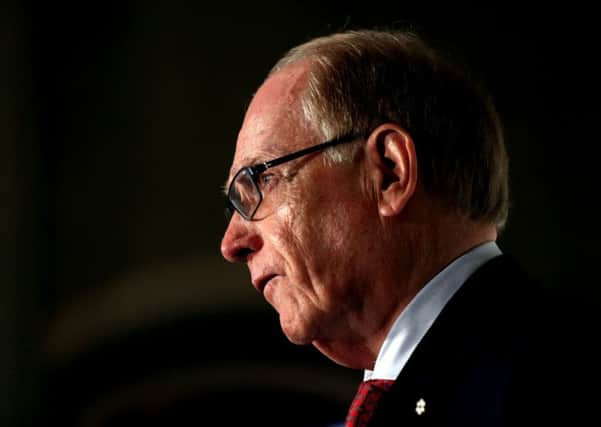'˜Corruption on an unprecedented scale': How Russian doping poisoned London's Olympics


More than 1,000 Russian athletes in 30 Olympic and Paralympic sports benefited from a state-sponsored doping cover-up between 2011 and 2015.
The conspiracy involves dozens of medallists from the London 2012 Olympics, the 2013 World Athletics Championships in Moscow and the Sochi Winter Olympics in 2014.
Advertisement
Hide AdAdvertisement
Hide AdLed by Canadian law professor Richard McLaren, the seven-month investigation is a damning indictment of an “institutionalised doping conspiracy and cover-up”.
McLaren says it is “impossible to know how deep and how far back the conspiracy goes”.
His final report, which has been published on the WADA website, includes more than 1,100 items of evidence. This evidence has also been published on a searchable database.
This treasure trove of emails, forensic reports and laboratory analysis entirely corroborates the key findings of his explosive interim report which was published in July, three weeks before the start of the Rio Olympics.
Advertisement
Hide AdAdvertisement
Hide Ad“The key findings of the first report remain unchanged. The forensic testing, which is based on immutable facts, is conclusive,” wrote McLaren in the executive summary of his final report.
“The evidence does not depend on verbal testimony to draw a conclusion. Rather, it tests the physical evidence and a conclusion is drawn from those results.”
McLaren said at a press conference that, as a result of its systematic doping, “the Russian Olympic team corrupted the London Games on an unprecedented scale, the extent of which will probably never be fully established”.
Russia won 24 gold, 26 silver and 32 bronze medals in London, while no Russian athlete failed a drugs test at the time of the Games.
Advertisement
Hide AdAdvertisement
Hide AdMcLaren added: “The desire to win medals superseded their collective moral and ethical compass and Olympic values of fair play.”
HOW THE STORY UNFOLDED
• December 2014: German broadcaster ARD reveals claims of drug-taking in Russian athletics, leading the ethics commission of athletics’ world governing body the IAAF to examine allegations of corruption and doping and WADA to set up an independent commission.
• November 2015: Russia’s athletics team is suspended by the IAAF and Russia’s anti-doping organisation, RUSADA, is suspended by WADA.
• January 2016: Russian athletics chief Valentin Balakhnichev and IAAF marketing consultant Papa Massata Diack are banned for life by the IAAF ethics commission for taking bribes to cover up failed doping tests.
Advertisement
Hide AdAdvertisement
Hide Ad• May 2016: Claims the Russian Sports Ministry and the FSB security service were involved in an organised doping campaign which included at least 15 medallists from the 2014 Sochi Winter Olympics are made by the former head of Russia’s anti-doping laboratory, Grigory Rodchenkov, living in exile in the United States.
• June 2016: The IAAF council votes to extend the ban on the Russian athletics federation. Russian sports minister Vitaly Mutko is implicated in covering up for coaches exposed as flouting doping regulations in a new ARD broadcast.
• July 18, 2016: Canadian law professor Richard McLaren releases his report for WADA detailing the degree of state-run doping in Russia at the 2014 Sochi Winter Olympics and other events. The investigation finds the Russian Ministry of Sport ‘’directed, controlled and oversaw’’ the manipulation of urine samples provided by Russian athletes at the Sochi anti-doping laboratory.
• July 21, 2016: An appeal by the Russian Olympic Committee and 68 of its track and field athletes against the ban from the Rio Olympics is rejected, the Court of Arbitration for Sport announced.
Advertisement
Hide AdAdvertisement
Hide Ad• July 24, 2016: Twelve days before the Olympic Games opening ceremony, the International Olympic Committee’s executive board decides against a blanket ban of the Russia team and asks each sport to vet proposed Russian competitors individually.
• August 2016: The International Paralympic Committee suspends the Russian Paralympic Committee, denying it the right to send athletes to the 2016 Rio Paralympic Games.
• October 2016: Olympic champion Lizzy Yarnold threatens to boycott the 2017 World Bobsleigh and Skeleton Championships if they are not moved from Sochi, due to doping concerns.
• December 9, 2016: The second part of the McLaren report is released, revealing more than 1,000 Russian athletes in 30 Olympic and Paralympic sports benefited from a state-sponsored doping cover-up between 2011 and 2015.